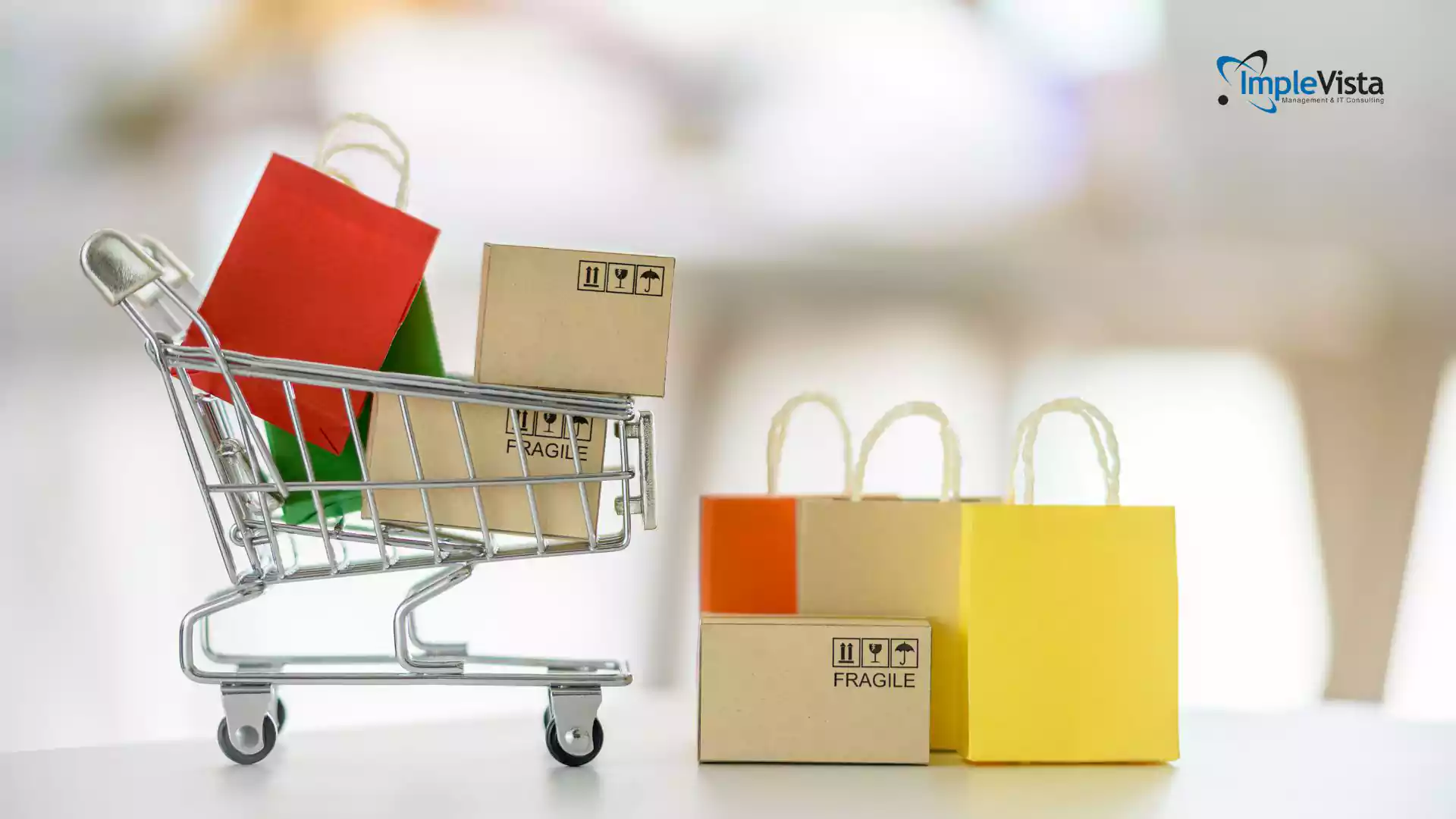E commerce Marketing has revolutionized the way businesses operate, and in Bangladesh, this transformation has been monumental. With the rise of internet penetration, affordable smartphones, and a growing middle class, the e-commerce sector in Bangladesh is thriving. To capitalize on this trend, businesses need tailored strategies that cater to local consumer behavior, digital landscapes, and market conditions. This article explores effective strategies for promoting e-commerce businesses in Bangladesh and driving sales online.
The Rise of E commerce Marketing in Bangladesh
The Bangladeshi e-commerce sector has seen exponential growth over the past decade. Platforms like Daraz, Evaly, and Chaldal have gained massive popularity, offering everything from electronics to groceries. According to recent studies, the sector’s growth is driven by:
- Urbanization: Cities like Dhaka and Chattogram are home to tech-savvy shoppers eager to explore online deals.
- Youth Demographics: A large percentage of Bangladesh’s population consists of millennials and Gen Z, who are comfortable with digital platforms.
- Mobile Dominance: Over 95% of internet users in Bangladesh access the web via smartphones.
While the opportunities are vast, the market also presents unique challenges such as logistical issues, payment barriers, and building consumer trust.
Key Strategies for E-commerce Marketing in Bangladesh
1. Localized Content and Communication
Localization is critical for connecting with Bangladeshi consumers. Businesses should:
- Use Bangla in ads and product descriptions to resonate with local audiences.
- Highlight cultural references during major festivals like Eid or Pohela Boishakh.
- Create region-specific campaigns to target shoppers outside major cities.
2. Leverage Social Media Platforms
Platforms like Facebook, Instagram, and TikTok dominate the Bangladeshi digital space. To maximize reach:
- Run targeted Facebook Ads, as Facebook remains Bangladesh’s most-used social media platform.
- Engage with users through Instagram Stories and Reels, showcasing new product launches or behind-the-scenes content.
- Utilize TikTok influencers for viral marketing campaigns.
3. Optimize for Mobile Users
Given the mobile-first nature of the Bangladeshi market:
- Ensure your website is mobile-friendly with fast load times and intuitive navigation.
- Offer a mobile app with user-friendly interfaces and exclusive discounts.
- Use SMS marketing to notify customers about promotions, delivery updates, or abandoned carts.
4. Adopt Influencer Marketing
Influencers play a pivotal role in shaping buying decisions. Partner with Bangladeshi influencers who:
- Have a strong following in your target demographic.
- Can showcase your products in an authentic and relatable manner.
- Specialize in niche markets, such as tech gadgets or fashion.
5. Invest in Digital Advertising
Digital ads are an effective way to generate brand awareness and drive sales. Popular options include:
- Google Ads for search-based campaigns targeting high-intent buyers.
- Facebook Marketplace Ads to attract bargain hunters.
- Retargeting ads to re-engage users who visited your site but didn’t purchase.
6. Enhance Trust with Secure Payment Options
One of the barriers to e commerce growth in Bangladesh is the lack of trust in online payment systems. To address this:
- Offer cash-on-delivery (COD), which is still the preferred method of payment.
- Partner with trusted gateways like bKash and Nagad for seamless transactions.
- Display trust badges and customer reviews prominently on your website.
7. Strengthen Logistics and Delivery Systems
Delivery time and reliability are major concerns for Bangladeshi shoppers. To improve:
- Partner with local logistics providers like Pathao or Paperfly.
- Offer multiple delivery options, including same-day delivery in urban areas.
- Use real-time tracking tools to enhance transparency.
8. Run Festival-Centric Campaigns
Festivals are prime shopping periods in Bangladesh. Businesses should:
- Roll out exclusive discounts during Ramadan, Eid, and New Year’s celebrations.
- Collaborate with celebrities for festive ad campaigns.
- Offer free shipping or bundled deals as part of festive promotions.
9. Focus on Customer Retention
Acquiring new customers is costly, so retaining existing ones is vital. Effective tactics include:
- Implementing loyalty programs that reward repeat purchases.
- Sending personalized email campaigns based on user behavior.
- Providing excellent customer support via live chat or social media.
10. Utilize Analytics to Drive Decisions
Data-driven insights are crucial for refining strategies. Use tools like:
- Google Analytics to track website traffic and user behavior.
- Social media analytics to identify the most engaging content formats.
- Heatmaps to understand which parts of your website need improvement.
E commerce marketing in Bangladesh offers immense potential for businesses ready to adapt to local market dynamics. Companies can drive significant online sales by embracing a mix of digital marketing strategies, optimizing for mobile users, and prioritizing customer satisfaction. As the sector continues to evolve, staying ahead of trends and understanding consumer behavior will be key to long-term success.
How to Start an E commerce Business in Bangladesh
The e commerce industry in Bangladesh is booming, presenting an excellent opportunity for aspiring entrepreneurs. With increasing internet penetration and widespread smartphone usage, the market is ripe for innovation and growth. However, starting an e commerce business requires careful planning and execution. This guide walks you through the essential steps to launch your online business successfully.
1. Establish Your Company
The first step in starting an e commerce business is to legally establish your company. This involves:
- Choosing a Business Name: Select a unique and memorable name that resonates with your brand vision.
- Registering Your Business: Obtain a trade license from your local city corporation or union parishad.
- Structuring Your Business: Decide whether your business will operate as a sole proprietorship, partnership, or private limited company.
Establishing your business formally builds trust with customers and opens up opportunities for partnerships.
2. Obtain Necessary Licenses and Permits
Compliance with local regulations is crucial. You may need:
- A Trade License to operate legally.
- A Tax Identification Number (TIN) to handle financial matters.
- VAT registration, depending on your revenue and product categories.
Consult a legal advisor to ensure you meet all regulatory requirements.
3. Identify Your Niche
Standing out in the competitive e-commerce landscape requires a clear focus. Research and choose a niche market where you can excel. For instance:
- Fashion and Apparel: Popular among younger demographics.
- Gadgets and Electronics: In high demand among tech-savvy users.
- Organic and Homemade Products: Trending due to growing health consciousness.
Understanding your target audience’s preferences and pain points is key to selecting the right niche.
4. Build a Strong Online Presence
Your online presence serves as your digital storefront. Key steps include:
- Creating a professional website with a user-friendly design.
- Leveraging social media platforms like Facebook and Instagram to engage with potential customers.
- Optimizing your online profiles with consistent branding, including logos, color schemes, and taglines.
A strong online presence increases visibility and builds customer trust.
5. Choose a Reliable E-commerce Platform
Selecting the right e-commerce platform is vital for operational efficiency. Options include:
- Shopify: Great for beginners with customizable templates.
- WooCommerce: Ideal for WordPress users.
- Local Platforms: Consider Bangladeshi platforms like Ghoori or ShopUp for localized support.
Ensure the platform aligns with your business needs, such as inventory management and scalability.
6. Set Up a Secure Payment Gateway
Payment security is a critical factor for customer trust. Popular payment options in Bangladesh include:
- bKash and Nagad for mobile payments.
- Cash-on-Delivery (COD), the most preferred method.
- Online banking for tech-savvy customers.
Partner with reliable payment processors to offer seamless and secure transactions.
7. Optimize Your Product Listings
Well-optimized product listings improve visibility and conversions. Focus on:
- High-quality product images with multiple angles.
- Clear, detailed descriptions highlighting features and benefits.
- Strategic use of keywords to improve search engine rankings.
Keep your inventory updated to avoid customer disappointment.
8. Implement Effective Marketing Strategies
Marketing plays a significant role in attracting customers. Popular strategies include:
- Social Media Advertising: Utilize targeted ads on Facebook and Instagram.
- Search Engine Optimization (SEO): Drive organic traffic by ranking higher in search results.
- Email Marketing: Send personalized offers and updates to your customer base.
- Collaborate with local influencers to enhance your brand’s reach.
Consistency in marketing efforts ensures long-term growth.
9. Provide Excellent Customer Service
Customer satisfaction is the backbone of any successful e-commerce business. Achieve this by:
- Offering responsive customer support via chat or social media.
- Implementing a hassle-free return and refund policy.
- Regularly collecting and acting on customer feedback.
Happy customers are more likely to become repeat buyers and brand advocates.
Starting an e-commerce business in Bangladesh is an exciting journey filled with opportunities. By following these steps—establishing your company, obtaining the necessary licenses, choosing the right platform, and focusing on customer satisfaction—you can build a thriving online business. With dedication and a customer-centric approach, success in Bangladesh’s growing e-commerce sector is within reach.
FAQs about E commerce Marketing in Bangladesh
Q: What is the current state of e-commerce in Bangladesh?
A: E-commerce in Bangladesh is rapidly growing, driven by increasing internet access, mobile usage, and consumer trust in online shopping platforms.
Q: How can small e-commerce businesses compete with large platforms like Daraz?
A: Small businesses can compete by focusing on niche markets, offering personalized customer experiences, and leveraging local influencers for targeted marketing.
Q: Which payment methods are most popular among Bangladeshi online shoppers?
A: Cash-on-delivery remains the most popular payment method, followed by mobile payment systems like bKash and Nagad.
Q: Why is localization important for e-commerce marketing in Bangladesh?
A: Localization ensures your marketing resonates with local consumers by addressing their language preferences, cultural nuances, and regional buying habits.
Q: How can e-commerce businesses build trust among Bangladeshi consumers?
A: Building trust requires transparent communication, secure payment options, reliable delivery services, and showcasing positive customer reviews.
Q: What legal requirements do I need to fulfill for an e-commerce business in Bangladesh?
A: You need a trade license, a TIN, and potentially VAT registration, depending on your business scale and product offerings.
Q: Which e-commerce platforms are most suitable for beginners in Bangladesh?
A: Shopify and WooCommerce are excellent global options, while local platforms like Ghoori and ShopUp offer localized support.
Q: What are the most popular payment methods for e-commerce in Bangladesh?
A: Mobile payment gateways like bKash and Nagad are popular, alongside cash-on-delivery, which remains the most preferred method.
Q: How can I stand out in a competitive e commerce market?
A: Identify a specific niche, provide exceptional customer service, and leverage targeted digital marketing strategies like social media ads and influencer collaborations.
Q: What are the initial costs of starting an e commerce business in Bangladesh?
A: Costs can vary but typically include licensing fees, website development, marketing expenses, and initial inventory procurement.








